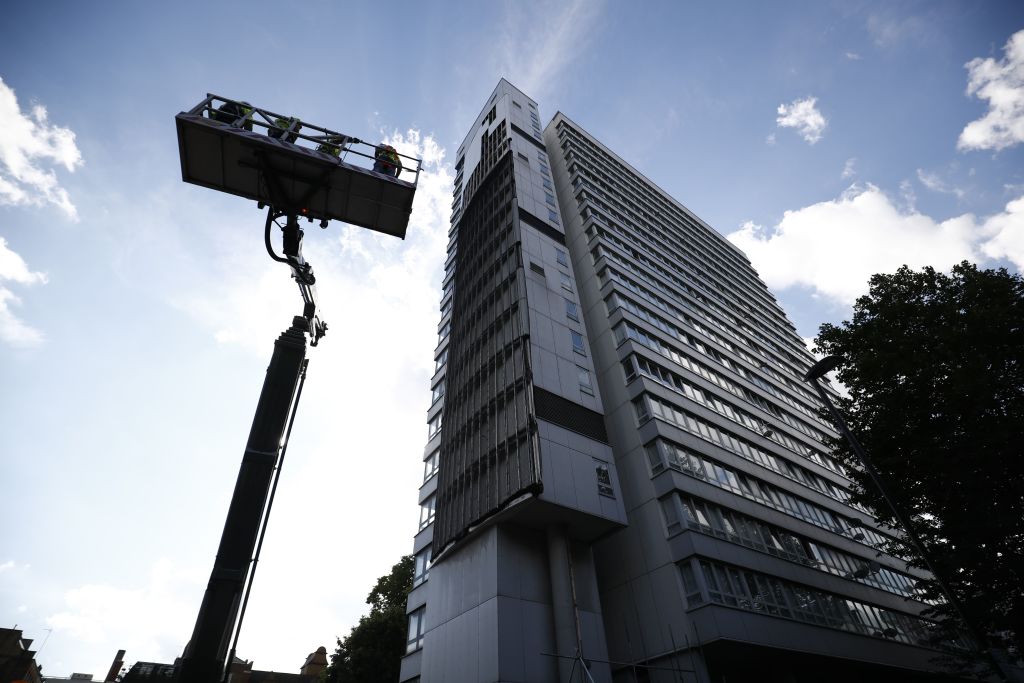It’s becoming increasingly difficult for Boris Johnson to keep track of the many different revolts within his own party. There are the groups pressuring the government on its response to coronavirus, on its treatment of Northern seats, and on Brexit. Now there’s a new row brewing on a completely different matter: cladding.
As Emma Byrne recently explained, this scandal has been building for months, but ministers seem to be doing very little about it. Currently, there are hundreds of thousands of people stuck in properties which have flammable cladding similar to that used on Grenfell Tower. Many of them are facing eye-watering bills of tens of thousands of pounds because as leaseholders, they are liable for the work to remove the cladding. They cannot sell their homes because the properties are currently deemed unsafe and therefore have no value.
There’s a damning report out today from the Housing, Communities and Local Government Select Committee which criticises the government’s failure to support these people adequately. It complains that leaseholders are still liable for the cost of fixing these safety defects, despite repeated assurances from ministers that they wouldn’t be. The report says: ‘We consider this unacceptable and an abdication of responsibility on the part of (the) government.’
There’s an urgent question on the matter in the Commons today from Committee chair Clive Betts, who is a Labour MP. But Tory MPs are also sufficiently anxious about the scandal, which affects the sort of homeowners they should normally consider their natural voters, that they are setting up a campaign group to pressure ministers. Stevenage MP Stephen McPartland and Southampton Itchen MP Royston Smith have emailed all their backbench colleagues asking for their support. The email says:
‘The government has done its best, but it has been over three years and they are not tackling all the issues. For example, the Ministry of Housing, Communities and Local Government issued a consolidated guidance note in January 2020 that resulted in all high-rise residential buildings being dragged into the External Wall System (EWS1) form, even though the Royal Institution of Chartered Surveyors (RICS) stated the EWS1 form is only suitable for buildings above 18 metres in height. It is welcome news over the weekend that buildings without cladding will no longer require an EWS1 form. Still, it is a sticking plaster solution and continues to leave millions of leaseholders behind.’
The pair argue that it is ‘not acceptable or fair’ that leaseholders in shared ownership properties, who may only own ten per cent of their home, are still responsible for 100 per cent of the costs. They say there are ‘lots of options and solutions to support the millions of leaseholders that are being left behind in our constituencies’.
The cladding scandal is getting more and more attention, and it will be very difficult for many of McPartland and Smith’s colleagues to ignore the growing anxiety from constituents. Radio phone-in programmes are deluged with callers who are clearly under huge mental strain as a result of the bills they are facing, or their inability to move house, even if they urgently need to do so.
There is a tone of voice that all of these people adopt: it is one of exhausted horror that they are in this situation and that no one in power seems to be listening to them. That is clearly about to change now that Tory MPs see merit in pressing their own government on this matter, as well as all the other areas they are unhappy about.







Comments